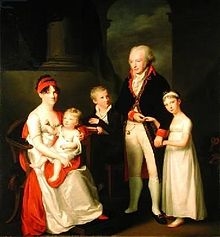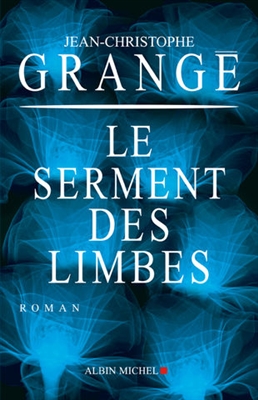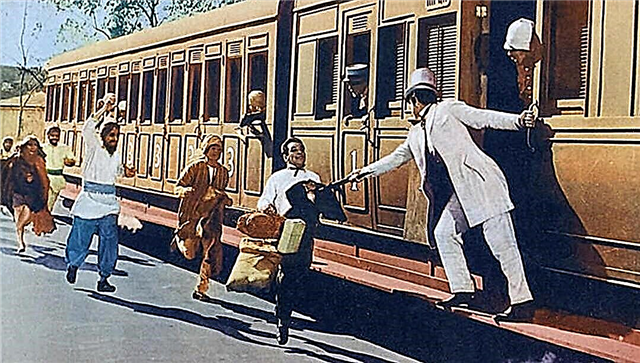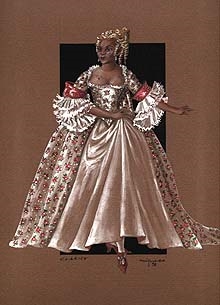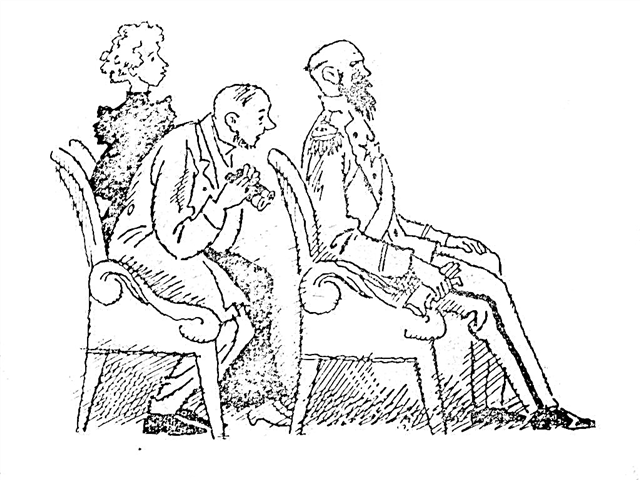: The wife of a major financial tycoon commits suicide in order to set up a young rival - the governess of her children. Sherlock Holmes investigates the case and rescues the governess from prison.
Sherlock Holmes seeks help from major financial tycoon Neil Gibson, nicknamed the Golden King. Gibson’s wife was found in the park at the entrance to the Torsky Bridge, dressed for dinner, with a head shot at the flight. No weapons were found near the corpse. Suspicion fell on the governess of Gibson's children, Miss Danber. A revolver was found in her closet, the caliber of which corresponded to the caliber of the bullet, and a note from the governess was found in the murdered woman with a proposal to meet. At the time of the murder, the governess was near the bridge. Everything is complicated by the fact that Gibson is in love with a girl.
Before the arrival of Gibson, Holmes is visited by his manager. He warns the great detective that his master is a rude and unbalanced man. Mrs. Gibson was Brazilian and loved him madly, but when her beauty faded, her husband’s affection also disappeared. The manager asks Holmes not to judge Gibson by appearance.
Gibson admits that he married for love, over time, love passed, but his wife still loved him. Then a governess appeared, Miss Dunbar.Declaring her love, the Golden King put the girl in a difficult situation: she could not leave, since her relatives were on her content. Then Gibson vowed that he would leave her alone.
Gibson suggests that his wife went mad with jealousy and decided to kill her rival. During a fight, she accidentally shot herself, but Miss Dunber rejects this version.
The great detective arrives at the crime scene. There he is met by a police sergeant. He says that the revolver in Miss Dunber’s closet belongs to Mr. Gibson. He has a lot of all kinds of weapons, but there are two such revolvers. The second can not be found. The shot was fired at close range, no traces of the fight were found, and in the fist of the murdered was found a note from Miss Dunber, in which it was reported that the girl would come at the appointed time to the Tor Bridge. The fact that a woman clenched a note in her fist seems strange to Sherlock Holmes. Examining the bridge, he notices a crevice on the parapet, a trace of a blow.
The great detective weighs the facts: Gibson quarreled with his wife and insulted her at all, but at the time of the murder he was at home. Miss Dunbar admits that she made an appointment, she can’t say anything else, she was forbidden by a lawyer. But why did she put the revolver in her closet, instead of throwing it in the pond? Miss Danber herself says she does not know about any revolver.
Sherlock Holmes visits Miss Dunbar in prison. The girl says that Mrs. Gibson fiercely hated her. That morning, Miss Dunber received a note from the hostess, in which she asked to meet on the bridge and destroy the note itself.At the request of Mrs. Gibson, the girl answered the sundial. When Miss Dunber came to the meeting, Mrs. Gibson spilled all her hatred on her. Covering her ears so as not to hear curses addressed to her, Miss Dunber ran away. She does not know anything about the revolver in the closet, since he was not there in the morning.
While thinking about what the great detective heard, a hunch dawns on him, he jumps up and urgently goes to the crime scene.
Arriving at the crime scene, Holmes ties a solid stone and a revolver with a twine. Throwing a stone over the parapet of the bridge, he takes a weapon in his hand and unclenches it. The revolver falls into the water, knocking on the parapet and leaving a chink on it. Holmes orders the sergeant to get his weapon out of the water and says that there should be a sinker and a revolver, from which Mrs. Gibson shot herself, accusing the innocent of a crime. Before committing suicide, she put a second revolver in the girl’s closet.




